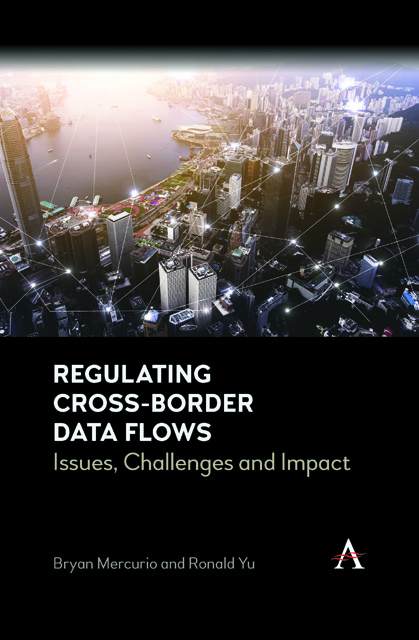Preface
Published online by Cambridge University Press: 22 November 2022
Summary
Data is now one of, if not the world's most valuable resource. The dramatic adoption of data-driven applications across economic sectors has made data and the flow of data so pervasive that it has become integral to everything we as members of society do – from conducting our finances to operating businesses to powering the apps we use every day.
Flows of knowledge and technology are at the centre of new networks driving production, innovation and opportunities. Data and its flow across borders are the lifeblood of the internet economy and significantly impacted various industrial sectors and the global economy. The growth of networks has allowed businesses to change how they structure and manage their design, production, marketing, customer support and other processes in order to optimize competitiveness and innovation.
Data is also fundamental to machine learning (ML)-based products and services. While developments such as the internet of things (IoT) and data-driven artificial intelligence (AI) systems will hasten the growing importance of the digital economy, these innovations are both strategic and sensitive due to potential externalities for businesses, governments, non-profits and more generally for society. These externalities generate new forces within industries that alter competitive dynamics, and consequently, result in new strategies and management practices. These strategic considerations have substantial implications for policymakers and regulators (Valavi et al., 2021).
Although data plays an outsized role in the evolution of a country's business and living environment, the breadth and impact of data make it difficult for a nation to ‘regulate’ per se. This is the result of numerous factors, including the growing number of interconnected devices that individually can generate ever-larger amounts of data with each new product line. Generation and application of data are now occurring in ways that had been unimaginable and/or impractical just a few years earlier. Domestic legislatures are not only struggling to catch up with the complexities associated with the technology but also in formulating standards and rules which are effectively targeted and do not result in serious unforeseen consequences. This has proven to be challenging, and trade-offs between, say, privacy and industrial policy or intellectual property (IP) protection and the development of AI must be made.
- Type
- Chapter
- Information
- Regulating Cross-Border Data FlowsIssues, Challenges and Impact, pp. xi - xviPublisher: Anthem PressPrint publication year: 2022

